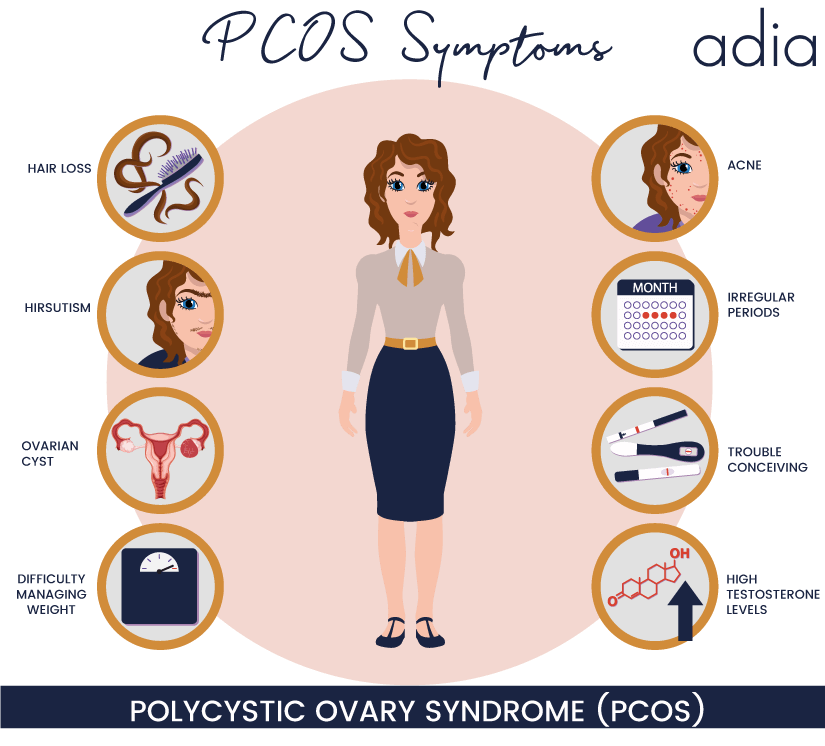Polycystic ovary syndrome (PCOS) affects 7-12% of Women and defined as a Hormonal Disorder common among Women of Reproductive Age and considered the most important cause of Female Infertility.
Definition
Polycystic ovary syndrome (PCOS) affects 7-12% of Women and defined as a Hormonal Disorder common among Women of Reproductive Age and considered the most important cause of Female Infertility.

Symptoms
PCOS is diagnosed when experiencing at least 2 of the following 3 features:
- Irregular periods. Infrequent, irregular, or prolonged menstrual cycles are the most common sign of PCOS. For example, you might have fewer than nine periods a year, more than 35 days between periods and abnormally heavy periods
- Excess androgen. Elevated levels of male hormones may result in physical signs, such as excess facial and body hair (hirsutism), and occasionally severe acne and male-pattern baldness
- Polycystic ovaries. Your ovaries might be enlarged and contain follicles that surround the eggs. As a result, the ovaries might fail to function regularly
PCOS Signs and Symptoms are typically more severe in case of Overweight or Obesity
Causes
The exact etiology of PCOS isn’t clear
Factors that might play a role include:
- Excess insulin. Insulin is the hormone produced in the pancreas that allows cells to use sugar, your body’s primary energy supply. If your cells become resistant to the action of insulin, then your blood sugar levels can rise and your body might produce more insulin. Excess insulin might increase androgen production, causing difficulty with ovulation
- Low-grade inflammation. This term is used to describe white blood cells’ production of substances to fight infection. Research has shown that women with PCOS have a type of low-grade inflammation that stimulates polycystic ovaries to produce androgens, which can lead to heart and blood vessel problems
- Heredity. Research suggests that certain genes might be linked to PCOS
- Excess androgen. The ovaries produce abnormally high levels of androgen, resulting in hirsutism and acne

Treatment
There’s no cure for PCOS, but the symptoms can be treated. Management focuses on alleviating signs & symptoms
- If you have PCOS and you’re overweight, losing weight and eating a healthy, balanced diet can make some symptoms better
- Medicines & Supplements are also available to treat symptoms such as excessive hair growth, irregular periods and fertility problems
- If fertility medicines are not effective, a simple surgical procedure called laparoscopic ovarian drilling (LOD) may be recommended
- This involves using heat or a laser to destroy the tissue in the ovaries that’s producing androgens, such as testosterone

